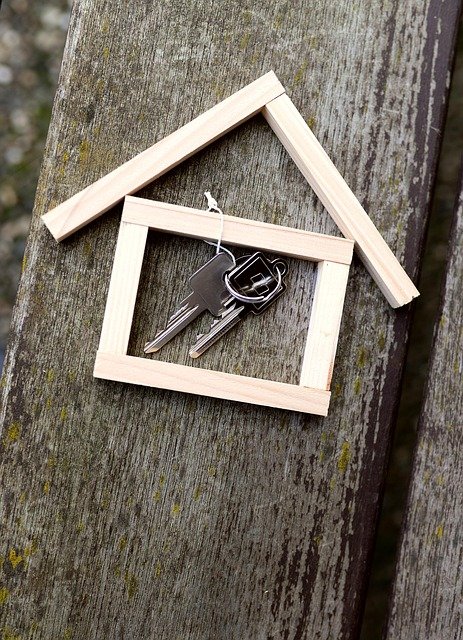Modern Modular Homes: Innovative Design for Contemporary Living
Modern modular homes are revolutionizing the housing industry, offering a unique blend of efficiency, sustainability, and customization. These prefabricated structures are changing perceptions about manufactured housing, providing homeowners with stylish, high-quality alternatives to traditional construction methods. As urban areas continue to expand and housing needs evolve, modular homes are emerging as a viable solution for those seeking modern, flexible living spaces.

What makes modern modular homes different from traditional homes?
Modern modular homes differ significantly from traditional stick-built houses in several key aspects. Firstly, modular homes are constructed in sections within a controlled factory environment, which allows for precise quality control and minimizes weather-related delays. This indoor construction process also reduces material waste and exposure to the elements, potentially increasing the longevity of the building materials.
Another distinguishing factor is the speed of construction. Once the modules are transported to the building site, assembly can often be completed in a matter of days or weeks, rather than the months typically required for traditional construction. This efficiency can lead to significant cost savings in labor and reduce the overall project timeline.
Additionally, modern modular homes are designed with flexibility in mind. They can be easily expanded or reconfigured to meet changing needs, making them adaptable to various lifestyles and family sizes. This versatility is particularly appealing to homeowners who anticipate future changes in their living requirements.
How to design modern modular homes for urban living?
Designing modern modular homes for urban environments requires careful consideration of space utilization and local building codes. Urban modular homes often feature compact, multi-functional layouts that maximize limited square footage. Designers focus on creating open floor plans with built-in storage solutions to enhance the sense of space and improve functionality.
Vertical expansion is another key strategy in urban modular design. Multi-story configurations can accommodate more living space on smaller plots of land, making them ideal for densely populated areas. Rooftop gardens or terraces are frequently incorporated to provide outdoor living areas and promote sustainability in urban settings.
Energy efficiency is a critical aspect of urban modular home design. High-performance insulation, energy-efficient appliances, and smart home technologies are often integrated to reduce energy consumption and operating costs. These features not only benefit homeowners but also align with many cities’ sustainability goals and building requirements.
Stylish interior design ideas for modern modular homes
Interior design for modern modular homes focuses on creating cohesive, functional spaces that reflect contemporary aesthetics. Open concept layouts are popular, allowing for seamless flow between living areas and maximizing natural light. Large windows and sliding glass doors are often used to connect indoor and outdoor spaces, creating an illusion of expanded living areas.
Modular storage solutions play a crucial role in maintaining a clutter-free environment. Custom-built cabinets, multifunctional furniture, and hidden storage compartments are frequently employed to optimize space utilization without compromising style.
Color schemes in modern modular homes tend to favor neutral palettes with pops of bold colors as accents. This approach creates a sense of continuity throughout the home while allowing for personalization in each space. Textural elements, such as natural wood finishes, exposed concrete, or metallic accents, add depth and interest to the interior design.
The benefits of choosing modern modular homes
Opting for a modern modular home offers numerous advantages over traditional construction methods. One of the primary benefits is cost-effectiveness. The controlled factory environment and streamlined production process often result in lower construction costs and reduced on-site labor expenses.
Environmental sustainability is another significant advantage. Modular construction typically generates less waste than traditional building methods, and many manufacturers prioritize the use of eco-friendly materials and energy-efficient designs. This focus on sustainability can lead to long-term energy savings for homeowners and a reduced environmental impact.
Customization options are extensive in modern modular homes. Buyers can often choose from a wide range of floor plans, finishes, and features to create a home that suits their specific needs and preferences. This level of personalization allows for unique, tailored living spaces that reflect individual tastes and lifestyles.
Comparison of modern modular home providers
When considering a modern modular home, it’s important to compare different providers to find the best fit for your needs. Here’s a comparison of some notable modular home manufacturers:
| Provider | Specialization | Key Features | Price Range |
|---|---|---|---|
| Blu Homes | Luxury modular homes | Proprietary folding technology, high-end finishes | $500,000 - $3,000,000+ |
| Method Homes | Custom modern designs | LEED-certified options, architect collaborations | $300,000 - $1,000,000+ |
| Connect Homes | Urban-focused modular | Patented modular system, streamlined shipping | $200,000 - $800,000+ |
| Plant Prefab | Sustainable prefab homes | LivingHomes design studio, energy-efficient systems | $400,000 - $1,500,000+ |
Prices, rates, or cost estimates mentioned in this article are based on the latest available information but may change over time. Independent research is advised before making financial decisions.
Modern modular homes represent a significant evolution in residential construction, offering a combination of efficiency, sustainability, and design flexibility. As urban areas continue to grow and housing needs become more diverse, these innovative structures are likely to play an increasingly important role in shaping the future of housing. By understanding the unique features and benefits of modern modular homes, potential homeowners can make informed decisions about whether this contemporary housing option aligns with their lifestyle and values.




